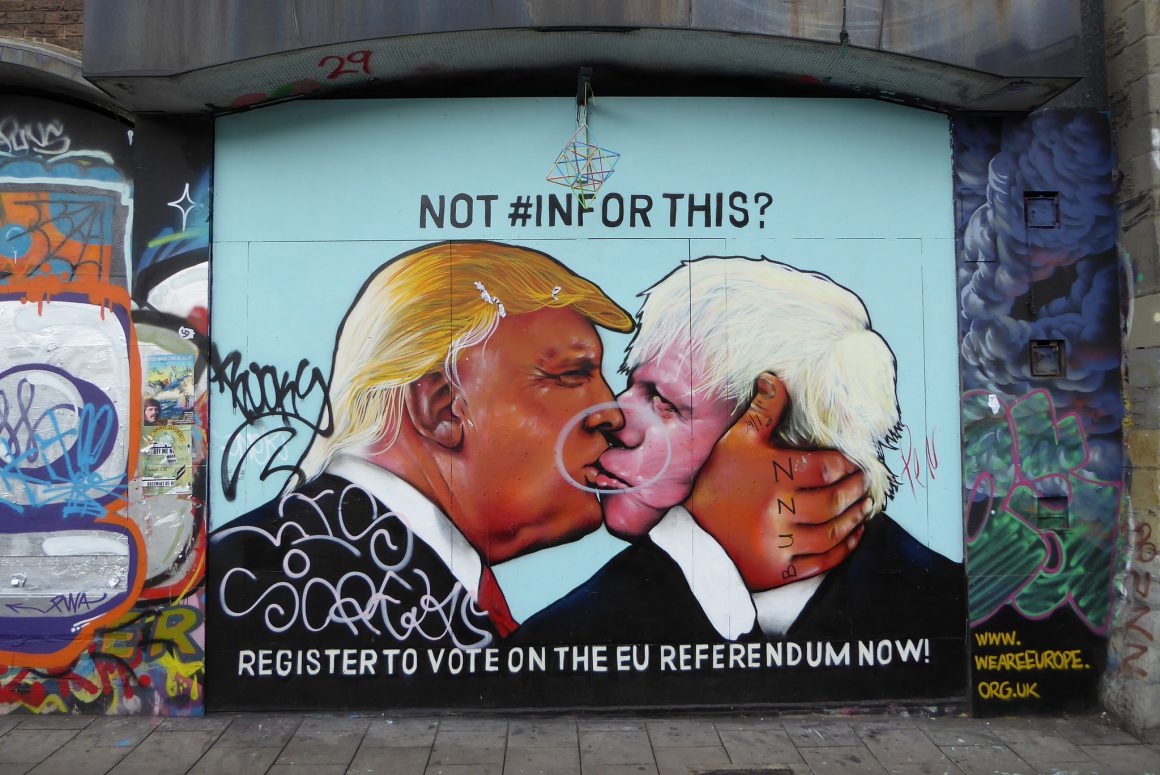If the Brexit vote led Britain and the European Union into uncharted territory, a Donald Trump victory could see the most powerful country in the world become the standard-bearer for populist movements everywhere.
The danger is very real as both Brexit and the rise of Mr. Trump share common factors that could give us some indications as to how Americans will be voting in November.
What Brexit and Donald Trump have in common
Though unwise to assume that the same factors propelling Brexit could ensure a victory for Donald Trump, the parallels are impossible to ignore. Populist campaigns fomented by economic anxieties, immigration and a disdain for the ruling elite, the Brexit referendum and Donald Trump’s bid for the White House tap into some of the same social woes.
Much of the frustration fueling Trump’s campaign and the Brexit referendum is directed towards national political establishments. Yes, the referendum was about breaking the yoke of European regulations, but in reality the vote had more to do with the politics of 10 Downing Street than with the decisions of Brussels.
Advocates of Britain leaving the EU tapped into the public’s disgruntlement with an increasingly unpopular David Cameron, leader of the Remain camp, and his embattled Cabinet. As Google showed, some British people were frantically looking up “what is the EU”, hours after many of them voted to leave it. The Brexit vote was a vote sanctioning the British political establishment, much like Trump’s success is in part due to supporters rallying against career politicians in Washington D.C.
Blue-collar workers from both sides of the Atlantic feel they’ve been handed a bad deal, fearing that their jobs and wages are under threat by immigration, free trade and technology.
Blue-collar workers from both sides of the Atlantic feel they’ve been handed a bad deal, fearing that their jobs and wages are under threat by immigration, free trade and technology. As policy makers fail to address this issue, the anti-globalization mood plays right into the hands of populist leaders who know how to harness it best.
A survey conducted by The Economist concluded that support for xenophobic populism, like the one driving the Brexit and Trump campaign, is strongest amongst those who are older, working class, white and male. These are the people least comfortable with the idea of globalization, who strongly back tariffs and border controls and want to see protections of varying kinds in place.
Border security has been high on the agenda for the Brexit vote, just as Trump undoubtedly struck a chord on immigration with his supporters. The emotional backlash against immigration, refugees and the idea of the free movement of people has long been exploited by Donald Trump and Brexiters alike. And it’s not just about jobs.
The migration of people in and out of countries gives way to an identity crisis that far exceeds its economic implications. This demographic change is perceived by many as the responsible factor for reshaping the fabric of society, with xenophobes blaming immigrants not only for taking their jobs but also for altering their national identity. What’s worse is that governments in the United States and United Kingdom have repeatedly proved unable to implement immigration reform, giving further ammunition to the populist rhetoric.
The emotional backlash against immigration, refugees and the idea of the free movement of people has long been exploited by Donald Trump and Brexiters alike. And it’s not just about jobs.
Another campaign topic that Donald Trump and Brexit leaders have in common is this carefully crafted nostalgia for lost pride and diminished worldly reputation. If some voters hope that a UK exit could help restore British sovereignty and its historical place in the world, Trump supporters believe that an emboldened, aggressive America, obsessed with its exceptionalism and looking to close in on itself will again become “a great nation.”
This last key common aspect is the cornerstone of populism and one of the main reasons why a Donald Trump, Nigel Farage or Boris Johnson are so successful. It is the appeal of simplicity—the promise of simple solutions in a time of complex problems—that garners so much support.
Kindred voters
The Wall Street Journal points out to one not so unexpected conclusion: two-thirds of Britons voting for Brexit have not finished high school. Older, white, less educated and poor, they fall much into the target group of any populist politician. In the United States, the same demographics closely mirrors Trump’s electorate. The lack of a college diploma could help identify a Trump voter.
Older, white, less educated and poor, they fall much into the target group of any populist politician. In the United States, the same demographics closely mirrors Trump’s electorate.
November’s vote will not be about Democrats versus Republicans, Left versus Right, but rather open versus closed. Those who regard technological change, free movement of people, globalization and all that comes with it as threatening and destructive will move towards the political fringe. They will vote for nationalists and populists who blame immigrants and promise to topple the establishment and to push for a radical shift away from the status quo.
A victory for Brexit does not guarantee a victory for Trump in the autumn. It does, however, show that forces of nationalism, populism and anti-globalization proved strong enough to win the UK referendum and they might be powerful enough to win the American elections, too.



